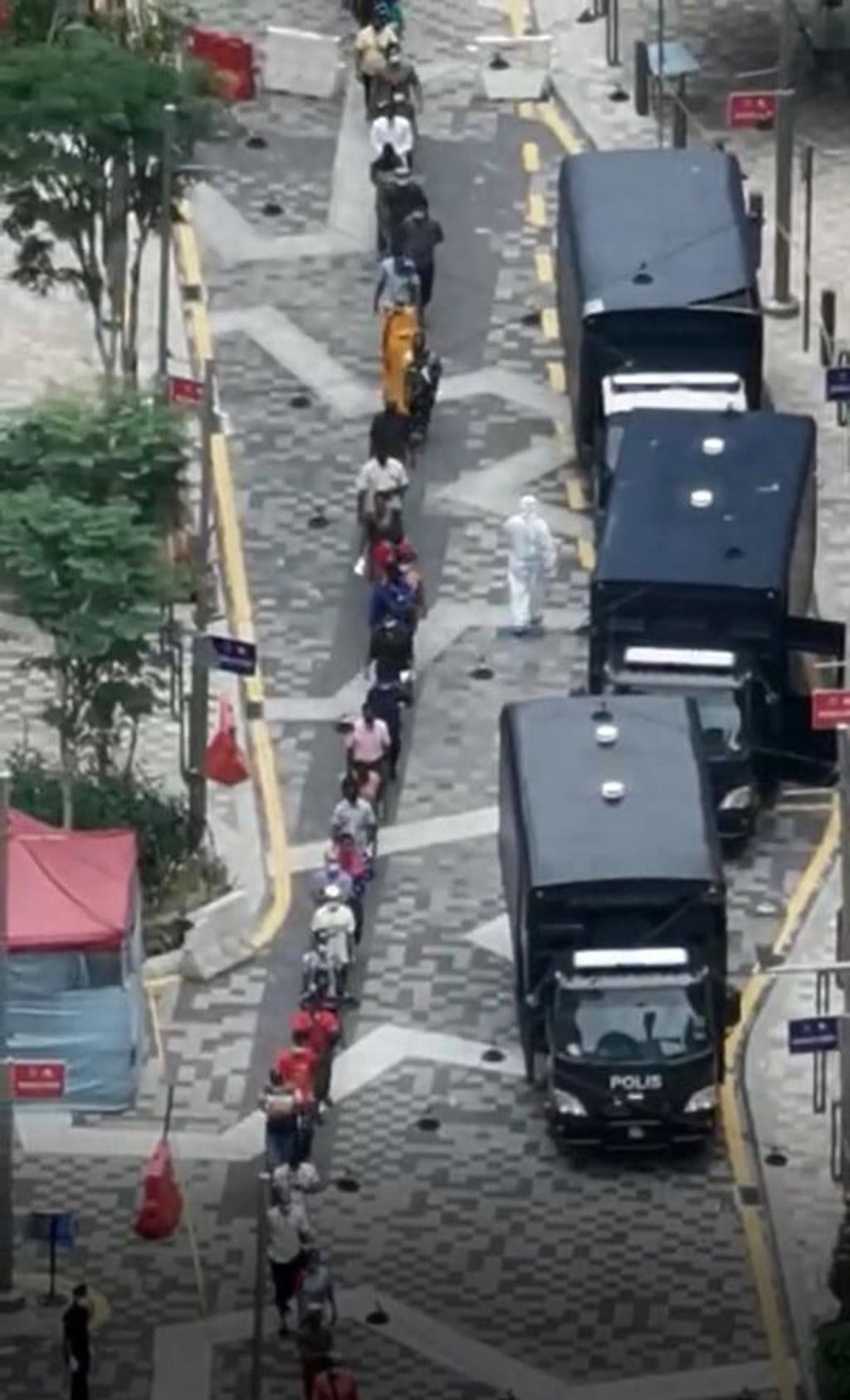Advertisement
Coronavirus: hundreds arrested as Malaysia cracks down on migrants in Covid-19 red zones
- Children as young as four have been taken in immigration raids launched by Malaysia just hours after it announced the easing of its lockdown
- The raids come despite an earlier government assurance that undocumented migrants had ‘nothing to fear’ in coming forward to be tested for the virus
Reading Time:4 minutes
Why you can trust SCMP
0

Just hours after announcing it would be relaxing lockdown measures aimed at stemming the spread of the coronavirus, Malaysia arrested hundreds of migrant workers and refugees in a crackdown on Covid-19 ‘red zones’.
Forces from the civil defence, the police and immigration forces raided three buildings in Kuala Lumpur in the Labour Day operation and are understood to have arrested hundreds of people.
Photos which appear to show the operation were supplied to the South China Morning Post by a source who cannot be identified for safety reasons.
The buildings were all under an ‘enhanced movement control order’ as part of a red zone in which people were prohibited from entering or exiting as part of a pandemic prevention measure.
Each of the three buildings – Selangor Mansion, Malayan Mansion and Menara City One – were apartment blocks offering low cost accommodation.

Advertisement